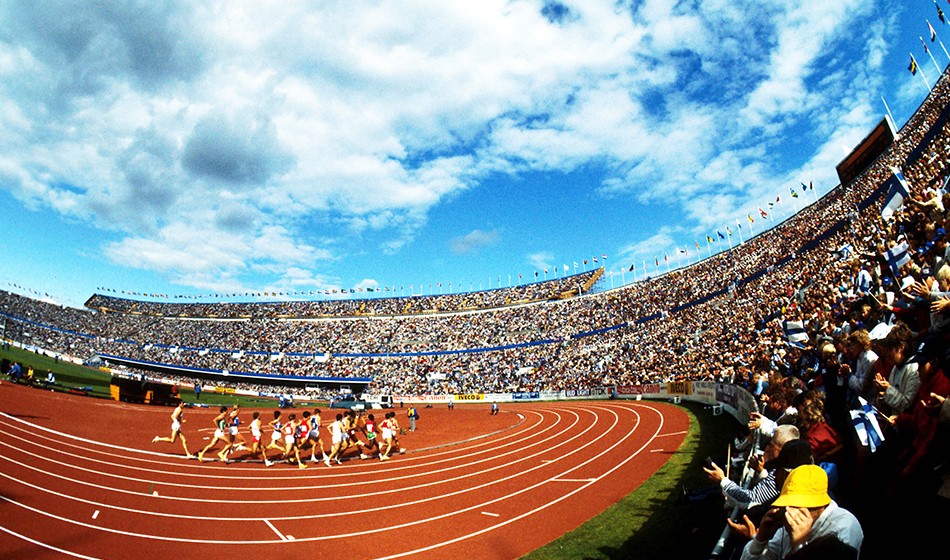It’s now 40 years since the inaugural World Athletics Championships took place in Helsinki. As Ben Bloom discovers, their birth was not only reactionary, but revolutionary
handful of years ago, while wading through old artefacts in preparation for the launch of World Athletics’ heritage department, an employee at the sport’s governing body stumbled across some dusty scrapbooks.
The contents related to 1983, when the inaugural World Championships were held in Helsinki. The rudimentary nature of the official documentation spoke volumes of the state of the sport at that time.
“Our headquarters back then were in London and someone from head office had clearly just walked into WHSmith and bought a number of scrapbooks to stick in newspaper articles from the World Championships,” says Chris Turner, World Athletics heritage director.
“The report is very, very basic – nothing was typed. It’s a lovely document to see but it shows just how much everything was in its infancy.”
As the sport prepares to celebrate the 40th anniversary of those first World Championships with the event’s 19th edition in Budapest this month, those scrapbooks provide a pertinent reminder of just how much has changed in a short period of time.
Until 1973, when it was gifted what became the World Cross Country Championships, the governing body did not own, operate or organise a single competition. Indeed, it had no revenue beyond what it received through the International Olympic Committee (IOC) and its annual global development budget prior to the launch of the World Cup in 1977 was a paltry $15,000.
The instigator of radical change was Dutchman Adriaan Paulen, only the third person to be president of the International Amateur Athletic Federation (IAAF) – as World Athletics was formerly known – in the organisation’s 64-year history. It was time to drag an amateur sport into a professional era.
“For an old gentleman, Paulen was pretty visionary and very young in terms of what he thought about the sport and where he thought it should go,” says Turner. “Could the launch of the World Championships have happened under his predecessor Lord Burghley? I’m not so sure. He had a very traditional way of looking at sport.
“Paulen was the joining factor between the old regime and what was to come under Primo Nebiolo [Paulen’s successor as president], who was very much a businessman. The legacy of what we have today was changed by Paulen. It’s amazing how…
CLICK HERE to Read the Full Original Article at AW…

